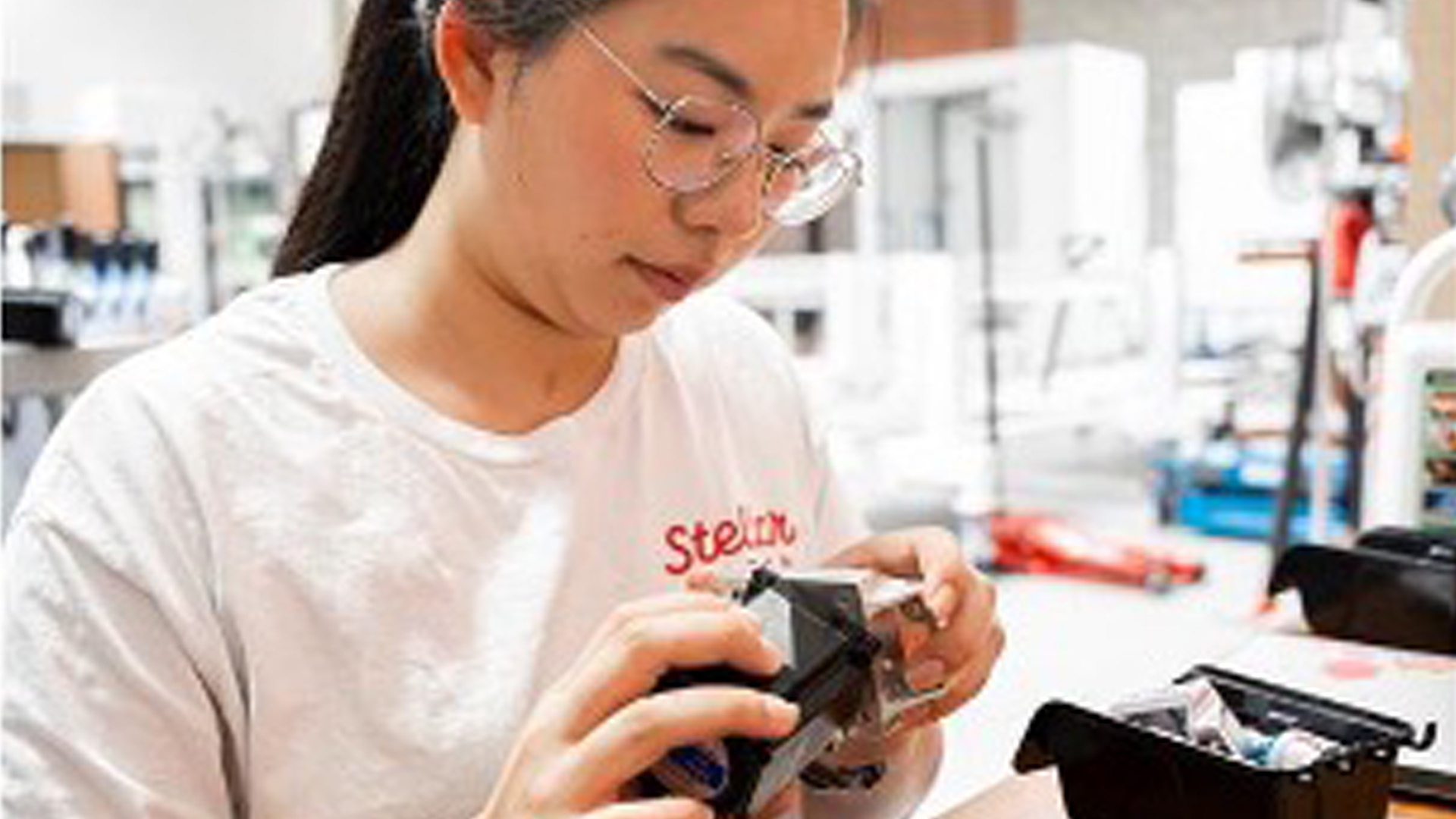Summer Internships Give Harvey Mudd Students Real-World Startup Experience
October 28, 2022
Inspiring, validating, confidence-building: This is how Harvey Mudd College students describe their time working in—and learning about—startup technology companies as part of the College’s new Entrepreneurial Summer Fellowship. In all, 19 students gained first-hand experience at a dozen companies, many run by Mudd alums, and got a taste of the startup space.
“For this college-wide program, companies tell us what they’re looking for, students do the same, and then we match them up,” says Kash Gokli, inaugural director of entrepreneurship initiatives and Oliver C. Field Professor of Manufacturing Practice and Engineering Economics. He notes that both the students and the companies reported numerous benefits.
The student view
“I did research on campus before, but I also wanted to see what it’s like in the industry, and see my engineering knowledge being applied,” says Jenny Wathanakulchat, a senior engineering major who spent 12 weeks as a test-and-integration engineer intern at the robot-pizza-making company Stellar Pizza. Besides reviewing new components and reporting back to the design team, she also helped communicate the technology to its end-users, she says. “One of the biggest things I learned was how to incorporate the human aspect—engaging with operators to make sure everyone knows how the tech works and how to do it safely.”
Stellar Pizza had one intern, but other participating companies accepted more. One was Aquilius, a life science and medical technology incubator that brought in interns from several schools, including three from HMC. Interns attended lecture-style meetings centering on the ins and outs of running a new tech company, while also working in teams to solve one of several real-world, biology-related problems. “The idea was that we would create a little company from the start, develop actual prototypes and finally present that project to a panel of investors who would vote on which company had the most potential for moving forward,” explains junior engineering major Devon Overbey. To sweeten the pot, Aquilius offered a $10,000 prize for the top team project.
“The whole experience was solid,” Overbey says. “I’ve been thinking about starting a company since high school, but this internship definitely made me feel more confident in my abilities, especially the fact that my team’s project showed promise to actual investors, and we ended up winning the prize, which we split three ways. That was really cool.”
The company view
Two of the other participating companies included Flycoin, a cryptocurrency-based, frequent-flier-loyalty program, and Trilo Bio, a robotics synthetic biology startup.
“We wanted HMC interns because Mudders are amazing,” said Nate Daiger, Flycoin CTO. “I’ve met lots of them through HMC INQ, and if you’re looking for smart people who can jump into any tasks and tackle them with aplomb, I don’t think you can do any better. And that’s what startups need most.” The company’s three Mudd interns excelled, he commented. “Everyone here, including many HMC grads, were extremely impressed with their skill and diligence.”
Trilo Bio decided to offer an internship because it was “an opportunity to nurture a relationship with a Harvey Mudd student just beginning their career,” says co-founder and CEO Roya Amini-Naieni. “When I was younger and just starting out, someone let me join their research team. What I’ve found is that people who are given an opportunity [early on] tend to work harder and be more creative because it’s their first chance,” she says. She was not disappointed, describing her company’s intern, first year Arman Khasru, as a “super-independent” person who dove right into a microfluidics project to assist with genetic engineering experiments. “He was our first intern ever at the company, and he did well,” she says.
What’s next?
With the program’s successful first-year in the books, Gokli now hopes to expand it. “My plan is to make it a bigger-impact program, perhaps even doubling the number of students who participate.” To do that, he encourages other companies to either contact him by email or phone or fill out the website form. He notes that HMC fully or partially funded some of the internships in 2022, so he is seeking other ways to sponsor students in 2023 and beyond. “This is especially important for students who are perhaps disadvantaged or are first-year students and typically would not get a nice internship like this,” he says, noting that the investment helps students build their portfolio of knowledge and experience.
The benefit to students is real, agrees Wathanakulchat. “Mudd is a very hands-on experience already, but it’s still not ‘real’ compared to the outside [business world]. It’s a really good, comforting moment to see that what you did in classes actually applies. It’s very validating.” Besides, she adds, “I had such a good time.”
